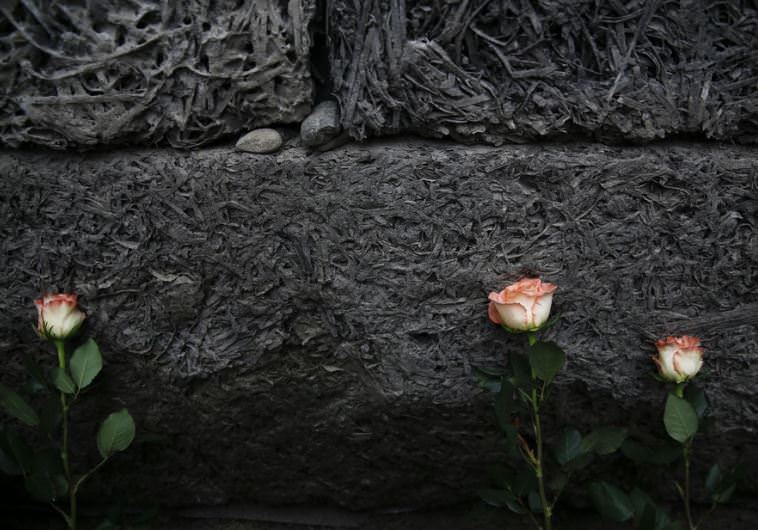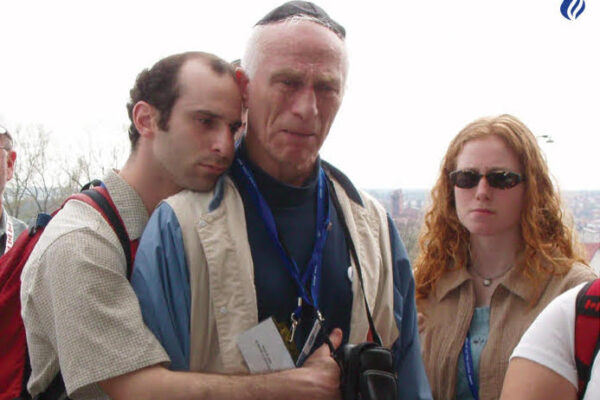
Photo by: REUTERS
By Daniel Schatz
This month marks the 48th anniversary of the state-sponsored anti-Semitic campaign of March 1968 in communist Poland. The last remaining survivors of the Holocaust – in a country that, prior to the war, had more than three million Jewish citizens – were declared to be “foreigners,” “Zionists,” “cosmopolitans” and the ultimate enemies of the Polish People’s Republic.
The purge resulted in the forced exodus of 20,000 Jews, a mere 25 years after Nazi Germany had carried out the Holocaust on Polish soil. Thousands of members of the country’s intelligentsia, including outstanding scientists, artists and writers, were expelled from the country. Many of the émigrés took refuge in Scandinavia, Israel and North America, among other destinations, forced to – once again – build a new life.
The governing United Workers’ Party under the leadership of first secretary Władysław Gomułka and internal affairs minister General Mieczysław Moczar unleashed the campaign of hate in connection with the Six Day War. “Israel’s aggression in the Arab countries was met with applause in Zionist circles of Jews – Polish citizens,” Gomułka declared during a passionate speech delivered before the Trade Union Congress of June 19, 1967.
The first secretary concluded that “we do not want a fifth column to emerge in our country.” He thereafter called for the expulsion of the country’s last survivors, urging “those who feel that these words are addressed to them” to emigrate. A cheering crowd greeted his words with long and enthusiastic applause.
The speech constituted a signal for those who had long been awaiting the witch-hunt which now was given an official green light. A propaganda campaign followed in the state-owned press combined with the mass mobilization against “the enemies of socialist Poland,” with a wave of rallies across the county.
One of the largest demonstrations gathering up to 100,000 people, in Katowice, demanded a purge of “Zionist elements” from party ranks, their removal from their positions, and the expulsion of their children from universities, exhibiting such slogans as “Down with Zionism – the Agent of Imperialism!” “Purge the Party of Zionists!” “Zionists to Zion!” and “We’ll Cut Off the Head of the Anti-Polish Hydra!” The unbearable consequences of the purge included Jews being prosecuted for defaming the Polish state and being subjected to systematic harassment and physical brutality at universities and workplaces. They were ultimately expelled from their jobs and campuses, had their citizenship revoked and were forced to emigrate.
These developments were secondary to the main chapter of the March events, an uprising initiated by students and intellectuals against the Polish communist state, in parallel with the Prague Spring events in neighboring Czechoslovakia.
Jews were accused for having instigated the rebellion which called for democratic reforms and were detained and beaten, subjected to torture and imprisonment.
Jozef Dajczgewand was arrested by the police on March 12, 1968 and sentenced to two years in solitary confinement where he was subjected to torture, following an anti-Semitic smear campaign directed against him in the state-owned national press. He concludes that “we lost all of our human dignity and human rights, there was a general feeling on the streets that Jews could, once again, be freely persecuted.”
He recalls the systematic abuse, highlighting that “the police ordered me to take off my pants, screaming ‘fu**ing Jew’ while interrogating me. I closed my eyes wondering for a second if it was Poles who committed these acts, or the same Nazis who had persecuted my parents.” Dajczgewand concludes that no Jews were left in the country when he was released from prison. “All my friends had left. I was all alone and Poland was cleansed from Jews. I could feel the echoes of history and decided to leave the country.”
Another émigré, Dorotea Bromberg, similarly recalls in a testimony to the Jewish Museum of Stockholm: “We could read in the newspapers and hear on the radio that it was Jews (“Zionists”) who had stirred up the students.
On the same day my father was dismissed from his job.
Almost all our friends and acquaintances disappeared.
We were forced to leave the apartment that we had lived in for 20 years. We had to move to a small apartment in a building in which the neighbors were openly hostile towards us.”
“Everything changed at school,” she recalls. “My grades were lowered and all my friends had suddenly disappeared.
No one dared to talk to me anymore. Only one friend remained, Grazyna. She refused to abandon me and protested to the teachers. She was called up to the school principal and told that she was never to attend school again. And she was forbidden to apply to any other school.”
Bromberg relates how “Sixteen-year-old Grazyna went home, wrote a letter about how deeply she was ashamed at what was going on in Poland, and opened the gas tap…. As if it was not enough to lose my best friend I was accused of causing her death. The school reported me to the police and I was forced to confess my ‘crime’ in the assembly hall in front of the entire school.”
She concludes: “Following a virulent media campaign against my father he was threatened with prosecution, accused of taking part in a ‘Zionist conspiracy’ against Poland. He faced ten years or life in jail. He was refused a lawyer and was cross-examined every day for a whole year. More than one hundred witnesses were forced to sign false testimonies against him. Our situation became untenable and we applied for permission to leave the country.”
The victims of the 1968 campaign were made stateless upon leaving Poland while their possessions were confiscated by the Polish state.
In 2000, Aleksander Kwasniewski gave his apology for the campaign of hate “as the president of Poland and as a Pole.” Eight years later, in 2008, Polish president Lech Kaczynski said that he wanted to atone for the 1968 events which he deemed “shameful,” highlighting that “I treat this as my personal contribution to reversing the consequences of those sad, shameful events. Never more.”
The Polish Republic, however, still stands out for its failure and lack of political will to fulfill and recognize its responsibility to the victims. Despite the 48th anniversary of the March events, no viable solution has been found to resolve the critical issue of compensation for the dispossessed, nor have any of its perpetrators been prosecuted.
Warsaw must revise this approach by passing comprehensive legislation providing for the complete compensation and restitution of assets stolen by the communist governments. The advanced age of the victims makes the matter all the more urgent and the need to act all the more pressing.
The European Convention of Human Rights (1953), which the Republic of Poland has ratified, states that “Every natural or legal person is entitled to the peaceful enjoyment of his possessions.” The convention makes it absolutely clear that “no one shall be deprived of his possessions except in the public interest and subject to the conditions provided for by law and by the general principles of international law.”
Poland’s reputation as a force for moral good would be made greater by reaching a just settlement, acceptable to all parties, on the issue of compensation from the victims of the 1968 expulsion. It is high time to compensate old offenses and confront the remaining ghosts of the past following 48 years of passivity and inaction.
The author is a political scientist, writer and expert on European politics. He is a Visiting Scholar at Columbia University and a Visiting Researcher at Georgetown University. He has served as a Visiting Fellow at Harvard University and Stanford University.
Originally published HERE.








